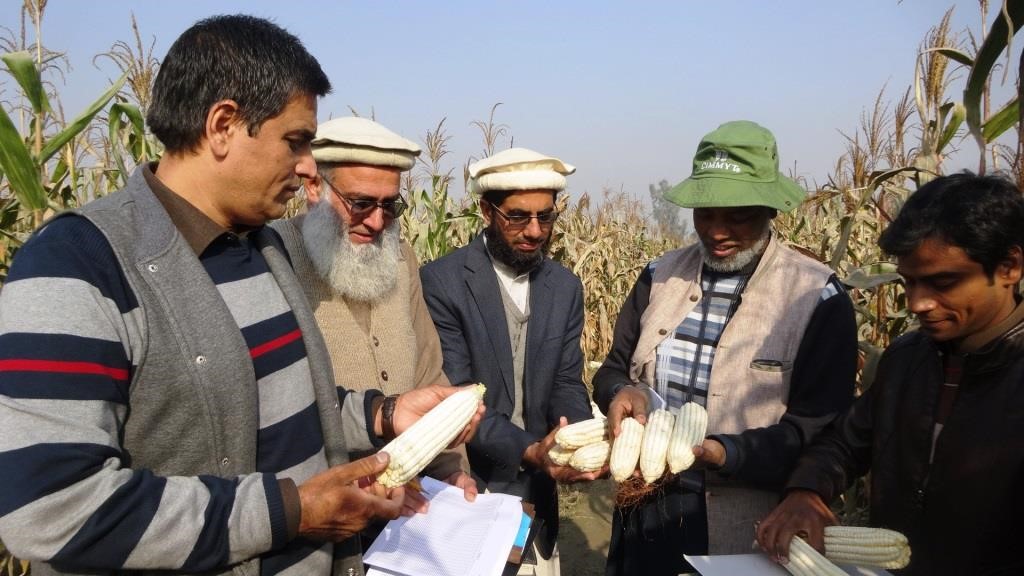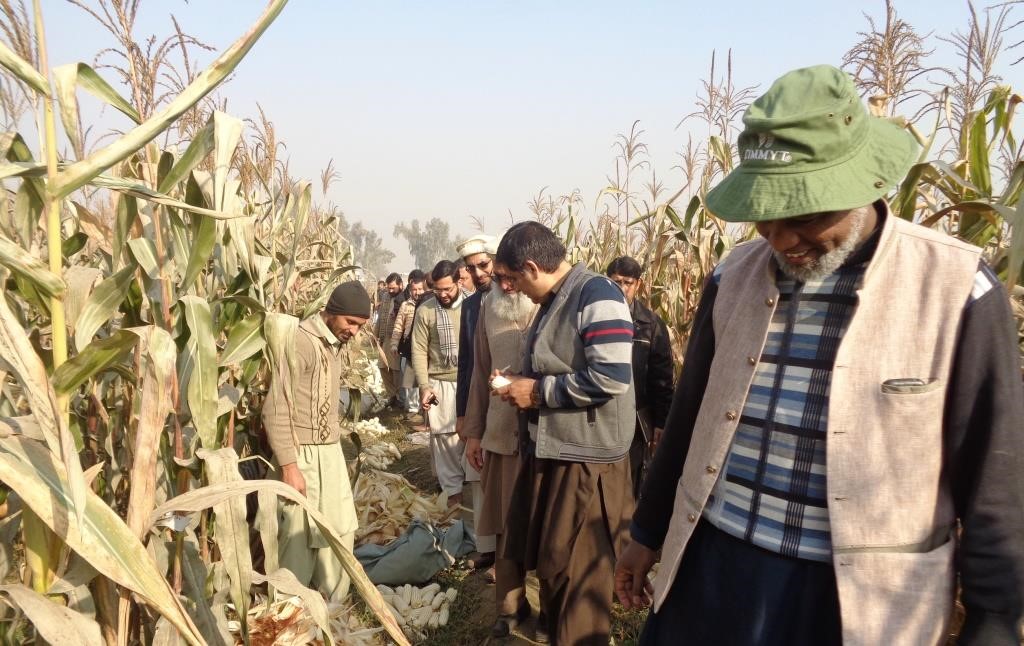
ISLAMABAD (CIMMYT) – New varieties of white maize in Pakistan have the potential to both quadruple savings of irrigation water and nearly double crop yields for farmers, thereby building food security and conserving badly needed water resources for the country.
Maize is the third most important cereal crop in Pakistan, which at a production rate of four tons per hectare, has one of the highest national yields in South Asia. Maize productivity in Pakistan has increased almost 75 percent from levels in the early 1990s due to the adoption and expansion of hybrid maize varieties. The crop is cultivated both in spring and autumn seasons and grows in all provinces throughout the country.
However, Pakistan is expected to be severely affected by climate change through increased flooding and drought, and is already one of the most water stressed countries in the world. If the country is to be able to meet future food demand, new maize varieties that can grow with less water under harsher conditions must be developed and adopted by farmers.
The Cereal Crops Research Institute (CCRI) in Pakistan’s Khyber Pakhtunkhwa province – an area particularly reliant on white maize for food, unlike other parts of the country where yellow maize is predominantly used for animal feed – recently tested nine white maize varieties (hybrids and open-pollinated varieties) provided by the International Maize and Wheat Improvement Center (CIMMYT) that demonstrated tolerance to water stress conditions.
Two of the early-maturing, open-pollinated varieties gave above average seed yields even though farmers irrigated the fields just twice, compared to the usual eight to ten times necessary with currently grown varieties. These varieties can also be harvested in less than 100 days and yield seven to 10 tons per hectare (ha) under good management practices – over twice the national average of four tons per ha – giving farmers time to grow another crop within the same season and produce nearly double the current national average yield.

CCRI will distribute about 1000 kilograms of these seeds to about 100 farmers across the province in the coming autumn season, which farmers will be allowed to keep for subsequent seasons. These varieties will not only contribute to climate mitigation strategies but also help farmers adopt new, sustainable cropping systems. In addition to meeting food demand, these new varieties also can alleviate the scarcity of livestock feed in Pakistan, contributing to the country’s food and nutritional security.
The CIMMYT-led Agricultural Innovation Program (AIP), which receives support from the United States Agency for International Development, is helping to bring affordable, climate resilient and water efficient maize options to market. Since the launch of the program in 2013, Pakistani researchers have identified more than 80 CIMMYT hybrids and open-pollinated varieties that are well adapted to the country’s diverse environments.
Learn more about how AIP is sustainably increasing agricultural productivity across Pakistan here.
 Climate adaptation and mitigation
Climate adaptation and mitigation 
